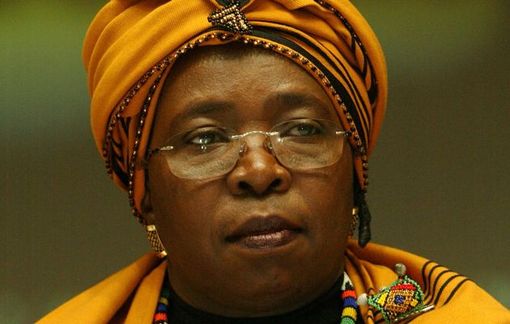The African Union Commission has expressed satisfaction with the Nigeria’s and other Member States’ quick response to the request for more volunteers and medical personnel to tackle the Ebola Virus Disease in parts of West Africa.
The Chairperson of the commission, Dr. Dlamini Zuma, told newsmen at the dispatch of 40 medical personnel to Guinea on Wednesday that the response was encouraging.
Zuma said there were pledges of 1,506 from Nigeria, Ethiopia, Democratic Republic of Congo and the East African Community.
Zuma said Nigeria had pledged to deploy 506 personnel within weeks, while Ethiopia had pledged 200 volunteers.
“I am ecouraged by the show of solidarity from the African Countries,” Zuma said.
The breakdown shows that the East African community will deploy 600 and DRC 200, while Ghana had set up treatment centres in addition to pledge to train the personnel on contact tracing.
Zuma, however, urged the international community to intervene in the provision of logistics in addition to the effort to meet infrastructure needs in the three affected countries.
Zuma appealed for logistics, including ambulances and other means of transportation, to ease the movement of patients and volunteers.
The dispatch of 40 volunteers to Guinea brings to about 140 the number so far deployed to the three EVD infected countries of Guinea, Liberia and Sierra Leone.
The volunteers were drawn from Nigeria, Rwanda, Kenya, Burundi, Zimababwe, Uganda, Niger and DRC.
The chairperson said the commission would convene a conference of the private sector on November 8 to deliberate on the effort and contribution from the business community to scale up the effort to stamp out the virus.
According to her, the meeting will also suggest effort to help the affected countries rebuild the economies after the Ebola is tackled.
Speaking on behalf of the volunteers, Landry Mayigane from Rwanda, appealed to the commission to step up campaign against stigmatisation of the personnel returning from the mission.
Mayigane urged the commission to ensure that the health personnel were accepted back into their communities after the volunteer mission in the infected countries.
Meanwhile, the AU Peace and Security Council, during its session on Ebola on October 30, reiterated the need for particular attention to address the impact of the epidemic on the post-conflict reconstruction and socio-economic development efforts in the affected countries.
It emphasised the need for long-term solutions in order to effectively contain the spread of the epidemic and prevent its recurrence.
The Council said: “In this regard, Council urges Member States to further strengthen their healthcare delivery systems.
“Council notes that the Ebola epidemic in West Africa is of an unprecedented scale and therefore, requires a united, coordinated and sustained approach in order to successfully contain and eradicate it.
“There is the need for the convening, as soon as possible, of an international conference on Ebola under the aegis of the AU with a view to mobilising additional support toward the fight against the epidemic and long-term mitigation of its effects.”
The council further stressed the urgent need to step up African efforts to fight against the epidemic and requested the Chairperson of the Commission to appoint a Special Envoy for Ebola.


